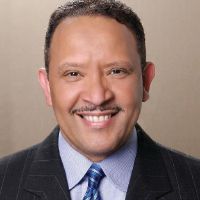State of Black America 2016: Interview with Marc Morial
By Final Call News | Last updated: May 17, 2016 - 3:02:19 PMWhat's your opinion on this article?
The National Urban League released its annual report on the State of Black America 2016. In advance of the release at the Newseum in Washington, D.C., Marc Morial, NUL president, spoke to reporters, including The Final Call’s National Correspondent Charlene Muhammad, during a teleconference on May 12. Below are excerpts from that media call.
See Related story: The battle for equity continues (FCN, 05-16-2016)
The Final Call (FC): Regarding your Main Street Marshall Plan, I see you have a special message to the president, how do you see getting the incoming U.S. president and the Congress for that matter, to adopt any of the recommendations, especially coming out of the age of Obama when President Obama really couldn’t get much of anything along some of these lines done? How do you see that, especially with Trump, if there’s a Trump presidency or Clinton?

|
FC: On the recommendations, some of these will probably take longer than others but are do you have any that you see that you’re asking the lawmakers to get done right away that really can be done? What’s the timeframe you’re looking at?
MM: I think one thing they can do right now is expand the summer youth employment program. I think we need to try to do everything we can to put millions of young people to work. When you look at the problems of Baltimore, Ferguson, Chicago, Los Angeles, you name it, we need to invest in our young people. We need to invest in our communities. We need to give them work opportunities, something to say yes to, a way to earn money. That can be done tomorrow! We need a national program. Many cities have their own program. They are good. They do not go far enough. We need a federal investment in young people in youth employment. That can be done tomorrow.
FC: When we think about the recommendation for expanding homeownership strategies, how does the mortgage scheme play into that in terms of still yet accountability with the bank bailouts and people really recognizing that people were tricked out of their homes? Is addressing that part of that expansion?
MM: Yeah. I mean, number one, we have to fight this notion that some want to peddle that we shouldn’t be pushing homeownership so aggressively … The second thing is we have to recognize that we need tools to help people make down payments. We need new tools to prevent people from being steered into predatory loans. We need tools to make mortgages more affordable. We need new ways of evaluating people’s credit. Sometimes people are barred from being able to buy a house because they have recension-related problems. Well, we have to help people move beyond that, even if they had some credit problems during the recession because they lost a job. There’s a range of things. We put this in here, because no place have we lost more ground as a community than the ground we lost with loss of wealth and homeownership during the recession from home foreclosures. We lost tremendously, and so it’s going to take a wide range of things. Let me step back and say the challenge of home ownership is not, you can’t separate it from the fact that people’s wages are not going up fast enough. So many times, people who are working cannot afford to buy a home. They don’t have the wherewithal to save even a few thousand dollars because they have to pay bills from paycheck to paycheck, so these issues, homeownership, economics, jobs, wages, are all tied together.
FC: So expansion of the low income Section 8 program, in your recommendation have you seen to address what happens with the type of criminalization under the Three Strikes Law that came in under former Pres. Bill Clinton. If a member of a family has one strike … they’re out of that place?
MM: Yes. HUD has promulgated a new rule which is to prevent landlords from automatically banning a person from renting because there’s a criminal record. It requires them to analyze the nature and extent of the criminal conviction, so some of this may require legislation to correct, because it was very draconian to say that even a person who paid their debt to society could not rent an apartment or couldn’t get a Section 8 certificate. We’ve got to reverse those kind of public policies, because they’re results of the mass incarceration craze that took place in this nation.
FCN: Thank you.
INSIDE STORIES AND REVIEWS
-
-
About Harriett ... and the Negro Hollywood Road Show
By Rabiah Muhammad, Guest Columnist » Full Story -
Skepticism greets Jay-Z, NFL talk of inspiring change
By Bryan 18X Crawford and Richard B. Muhammad The Final Call Newspaper @TheFinalCall » Full Story -
The painful problem of Black girls and suicide
By Charlene Muhammad -National Correspondent- » Full Story -
Exploitation of Innocence - Report: Perceptions, policies hurting Black girls
By Charlene Muhammad -National Correspondent- » Full Story -
Big Ballin: Big ideas fuel a father’s Big Baller Brand and brash business sense
By Bryan Crawford -Contributing Writer- » Full Story






 Click Here Stay Connected!
Click Here Stay Connected!








